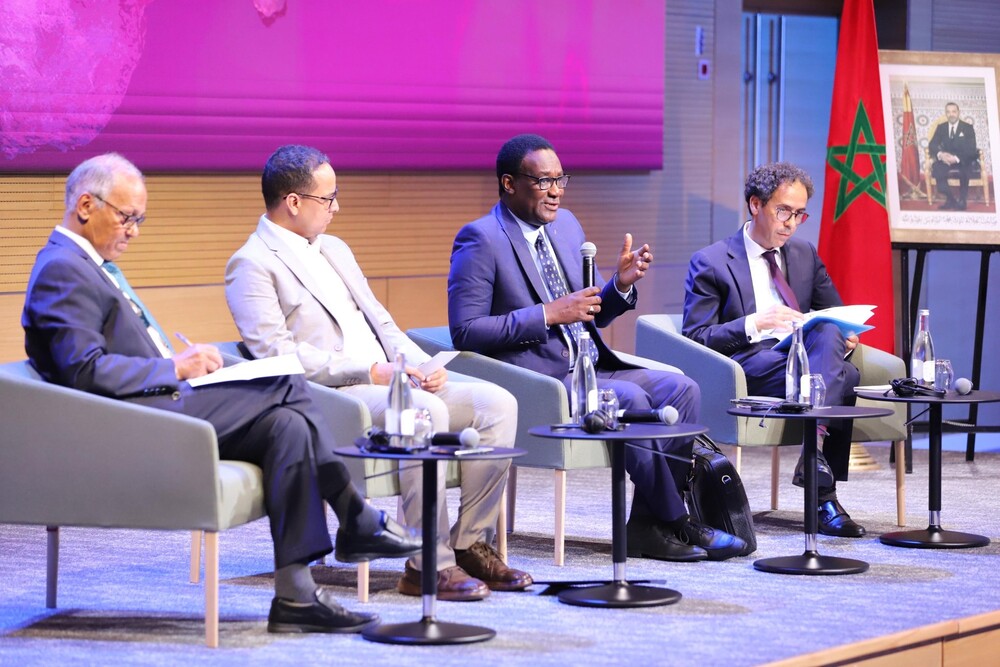In Rabat, the Policy Center continued the discussion on the Atlantic Initiative aimed at promoting an integrated space between coastal countries and landlocked Sahelian states.
On Thursday, May 22, the Policy Center for the New South (PCNS) gathered numerous African decision-makers, diplomats, and experts on the campus of Mohammed VI Polytechnic University in Rabat for the second edition of its conference dedicated to the strategic challenges of African maritime spaces.
Under the theme “Atlantic Africa: Ambition for Integration and Operationalization Process,” the meeting deepened reflections on regional cooperation around maritime, economic, and geostrategic issues.
This event builds on the Atlantic Initiative launched in 2023 by King Mohammed VI, which seeks to promote an integrated space between coastal countries and landlocked Sahelian states. Several high-level personalities took part, including Emelia Arthur, Ghana’s Minister of Fisheries; Zein El Abidine Med Salem from the Central Bank of Mauritania; Bouchra El Hayani from the Moroccan Agency for Sustainable Energy (MASEN); Mohammed Benzaria from the National Office of Hydrocarbons and Mines (ONHYM); and Mostapha Tafrhy, representing the Royal Navy.
Discussions focused on four main themes: building a common Atlantic identity, maritime governance, the development of the blue economy, and integration infrastructure—particularly the Nigeria-Morocco gas pipeline project, cited as a major strategic lever. Participants advocated for establishing strong institutions and regional platforms to amplify Atlantic Africa’s voice on the international stage.
The issue of Sahel’s landlocked status was central, with a strong call to provide these countries with lasting access to the sea—a vital condition for their integration into global value chains. The Nigeria-Morocco gas pipeline was presented as a structuring axis for co-development, fostering growth, employment, and regional cooperation.
On security matters, Morocco highlighted its naval diplomacy strategy. Mostapha Tafrhy emphasized the necessity of collective security to confront increasing threats in the Gulf of Guinea and the overexploitation of fisheries resources. This position was shared by Emelia Arthur, who called for better local valorization of African maritime wealth, breaking with the extractive approaches of the past.
Morocco’s leading role in this dynamic was unanimously recognized. Amadou Tall, an Ivorian blue economy expert, praised the impact of the Atlantic African States Process (AASP), a regional dialogue framework initiated by Rabat.
“We commend Morocco’s initiative, under the leadership of His Majesty King Mohammed VI, to carry this vision of Atlantic integration,” he declared.
Finally, the speakers stressed that the sea should no longer be viewed solely through a security lens but as a lever of economic sovereignty, regional integration, and geopolitical power. To realize this ambition, they called for the implementation of coordinated, concrete, and sustainable policies.
Source: apanews



